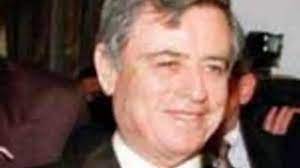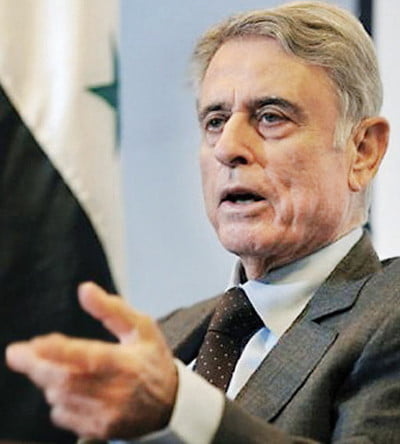Former Syrian Vice President Abdul Halim Khaddam accused Syrian President Bashar al-Assad of “working to destabilize the security situation in Lebanon because he believes that burning Lebanon will create a new situation” in the investigation into the assassination of the late Lebanese President Rafik Hariri. He considered that recent communications conducted by the United Kingdom and the United States with the Syrian regime “will not yield results.” He also accused Iran of launching a “Shi’ization” operation in Syria.
In an interview with “United Press International,” Khaddam stated that Assad “will work to destabilize the security situation in Lebanon because he believes that burning Lebanon will create a new situation that would relegate the international investigation (into Rafik Hariri’s assassination) to a secondary or tertiary concern… Because he knows that he is implicated in the Hariri assassination case.”
Khaddam regarded the resignation of ministers from Hezbollah and the Amal Movement from the Lebanese government as “a departure from the spirit of the Taif Agreement and came under pressure from the Syrian regime, supported by Iranian pressure as well.” He said that the threat by Hezbollah and the Amal Movement to take to the streets means “they are planning a coup, and if such a coup occurs, Lebanon will not remain.”
He added, “I believe that the visit of the British advisor (Nigel Sheinwald) to Damascus is aimed at gauging the regime’s willingness to change its behavior, and this is where the mistake lies, as the behavior is a product of the regime. The nature of the individual dictatorship regime can only produce aggressive behavior within the country and outside.”
Khaddam emphasized that his communications are ongoing with Riyadh after his meeting with the Saudi monarch. He stated that “Saudi Arabia supported Syria in all circumstances, providing it with political, military, and financial assistance. It acted as a political partner in the entire region through support and backing. No Arab country has not received Saudi support in one way or another, and it is natural for Riyadh to work to ensure the interests and stability of the Arabs.”
Regarding the criticisms he directed at the Iranian Ambassador in Damascus and the intention behind accusing him of engaging in activities not consistent with his diplomatic role, Khaddam said that “an ambassador in any country has limits that should not exceed what is commonly agreed upon in international agreements. However, the Iranian Ambassador in Damascus does not behave as an ambassador. There is no Syrian official, including the Prime Minister, who has the freedom to work within Syria as the Iranian Ambassador does. He exploits the existing poverty in the country and comes to an area saying that a certain companion passed through it and that we should build a shrine there. He builds a shrine and a religious center and distributes money to some of the poor. This is a project aimed at building an Iranian party in Syria through what can be termed as the ‘Shi’ization’ process.”
Khaddam accused the Iranian Ambassador in Damascus of “instigating turmoil in the country, especially as there are sectarian tensions in Iraq and Lebanon and a sectarian atmosphere in Syria, which will lead to a surge of fundamentalist extremism that Syria can do without. Syria and Muslims need unity, not discord.”


